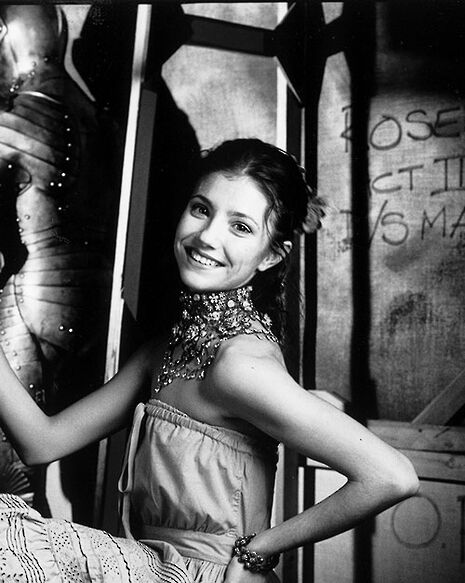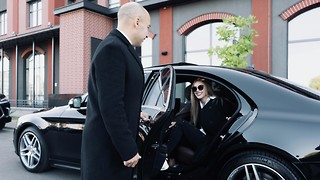Life en Pointe
From Bucharest to Wonderland, Alina Cojocaru talks to Varsity about life as principal ballerina with the Royal Ballet
Dancers hurry from one rehearsal to the next, tutus in hand. Row upon row of delicate costumes line bustling corridors filled with elaborate props for the upcoming show of Alice in Wonderland. Behind each closed door different sounds ring out: the beautiful voices of opera singers, the pattering feet of dancers practising a pas de deux, a single violin. Downstairs, in the Paul Hamlyn Hall, members of the public waltz their way through Friday afternoon: welcome to life backstage at the Royal Opera House.

Alina Cojocaru greets me in the press office in a beautiful green silk blouse and with a timid, eager smile. Surrounded by a world of theatrical glamour, widely acclaimed as one of the best dancers of the modern age, her manner is remarkably unpretentious. There is something very self-conscious about Alina and this reflects strongly in her work ethic: "When I first began professionally, I would collapse after work for an hour or so and then train until one in the morning at home. I would then leave the house at seven thirty to be ready for class the next day." Ballet dancers work hard. Behind those graceful smiles and the ethereal arms that make it look so easy are years of training and discipline.
But ballet is about far more than countless exercises à la barre. Talking to me about playing psychologically complicated characters at such a young age, she said, "It was difficult. I’ve never experienced many of the things that the characters I played have gone through and I couldn’t just call up my mum or my sister and ask them how to play a prostitute or whatever! I remember especially the first time I played Manon. I had to dance this with Johann [Cojocaru’s on and off stage partner] before we had started going out. There is a moment in which he has to pull down my top and could see everything! The audience can’t see but before the show I felt so nervous. But in the end, when the moment came, I was so involved in the character, and the ballet and the music, that this moment just felt right. I was simply being Manon."
At the age of nine, Alina was amongst the first group of children to be granted a passport out of post-communist Romania to study ballet at the Kiev Ballet School. "It was very regimented, yes, but I don’t think I was unhappy there." It wasn’t actually until she was thirteen that Alina saw her first ballet, "It was then that I realised what all those pliés and exercises were for. And I thought: wow! I want to be a dancer."
The ballet she saw was Giselle, fitting her fairy-tale rise to fame almost too perfectly. For it was with her first performance as this waif-like heroine in 2001 that Alina set the audience at Covent Garden buzzing with excitement, leading to her immediate promotion as principal ballerina at the tender age of 19. And the role has never left her. She has performed it across the globe, from the Mariinsky Ballet in Russia to New York. When I asked her what her favourite ballet was, she at first replied with the cliché "Oh, I really hate to choose". But then she paused and said, "Well I suppose that the ballet I feel I am missing if I haven’t performed it that season is Giselle. I sometimes wake up Johann in the middle of the night to tell him some new step that I want to work on. I’ll ask him to try and remember in case I forget the idea. Each time it’s a little different. You can change a move here or there, mainly just small things that most people wouldn’t see. That’s one of the nice things about being invited to companies to dance it with them. Each variation is different."
And what does she think about new choreography? "I love to be choreographed; it’s a really interesting process. You can spend a whole day rehearsing a new scene and then the next the choreographer will show up and say he’s completely scraped it! The classics are always the hardest to dance though. Not just technically but also because so many great dancers have performed them. The challenge is to find something new to bring to the character."
But life is not always rose-tinted for young, beautiful ballet dancers. Two years ago Alina suffered from a whiplash injury that threatened her career and disabled her for months. "At first I felt so lost. Ballet has been my life since I was so young and it was not certain I would recover. But soon I discovered that there was so much else…it was then that I felt that I grew into myself, as though I as a person finally caught up with the dancer I had become."
Her love of dancing saturated the conversation: "People often ask me what I would be doing if I wasn’t a ballet dancer. If there is something I feel that I am missing or if I wish I were able to do something differently. But if all you have grown up with is dance, you don’t miss the parties or whatever, because you’ve never known what it was like with them. Ballet careers are very short, so I just want to enjoy every moment of it."
 News / Uni offers students £55k in payouts31 October 2025
News / Uni offers students £55k in payouts31 October 2025 News / Uni error forces deeper spending cuts31 October 2025
News / Uni error forces deeper spending cuts31 October 2025 News / Students allowed to use AI, says new uni guidance31 October 2025
News / Students allowed to use AI, says new uni guidance31 October 2025 News / Students launch women’s society excluding trans women31 October 2025
News / Students launch women’s society excluding trans women31 October 2025 News / College rowing captains narrowly vote to exclude trans women31 October 2025
News / College rowing captains narrowly vote to exclude trans women31 October 2025









